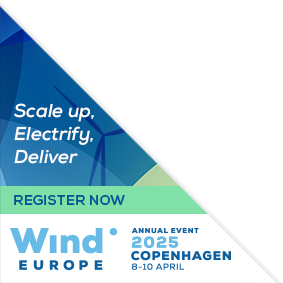Presentations
Siblings:
ProceedingsProgrammeSpeakersPostersContent PartnersPowering the FutureMarkets TheatreResearch & Innovation in actionStudent programmePresenters dashboard
Clean energy when the wind is not blowing: evaluating business cases for co-located offshore energy storage across 26 UK offshore wind farms.
Daniel Buhagiar, CEO / Co-Founder, FLASC B.V.
Abstract
The increasing penetration of renewable energy in the electricity supply networks brings significant technical and commercial challenges for grid operators: the variability of wind and solar power generation increases the imbalances between supply and demand resulting in increased payments through balancing mechanisms. An offshore energy storage system, co-located with offshore wind farms, can partly address this imbalance before it reaches the onshore grid and improve the quality of the produced power. In so doing, a co-located offshore energy storage system can therefore increase revenues from offshore wind generation, positively contributing to the overall business case. FLASC B.V. has developed a Hydro-Pneumatic Energy Storage (HPES) system tailored for offshore co- location within bottom-fixed and floating wind farms. Through collaborative work with Siemens Energy, FLASC has evaluated specific business cases for co-located offshore energy storage in the context of the UK wind market. The study covers 26 offshore wind farms using real time series data for power production. These wind farms include various rated power capacities and each experience a range of yearly curtailment rates. Co-located offshore energy storage can add significant value to offshore wind farms by improving the quality of the delivered power and the way it is monetised in the energy market. Balancing market participation can play an important role, and co-located energy storage allows the operator to hedge against balancing market volatility. It also allows for the monetisation of downward regulation in periods of low energy demand (by accepting curtailment bids and diverting power into storage). Fundamentally, co-located energy storage allows offshore wind to become an active provider rather than consumer of flexibility, thus reducing the need for typically fossil-fuel based balancing assets.










